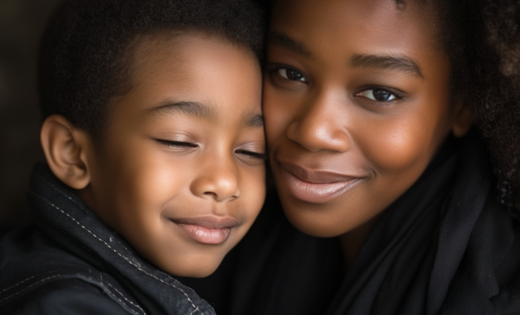on
BY: KATHY McDONALD
As parents, guardians, and caregivers we are charged with an awesome yet arduous task. We are responsible for nurturing, guiding molding and ensuring that our children and wards are equipped to be the best that they can be. This means that we should be committed not only to their spiritual and physical development but their educational growth as well. As parents or anyone that has a genuine desire to see students succeed it is crucial that we adequately equip ourselves. We must diligently make sure we have the right tools to navigate the vast educational system that our children have to traverse in order to graduate.
The United Achievers’ Club UAC hosted an informative workshop on August 11th in Brampton. The participants were provided with a wealth of knowledge to help them prepare to support their children for the 2018/2019 school year. The highlight of the event was the great discussions that were generated following the panel’s informative presentation. The panelist were; Abigail Hamilton, the executive director of ResQ Youth International; Claudette Johnson, a former guidance counselor, and Rasulan Hoppie, the principal of Castlebrooke Secondary School. By all accounts, this community discussion was a valuable tool which will assist the parents in attendance in supporting their children’s success in school. I would strongly encourage parents to continue to attend similar workshops and seminars that aim to empower and inform caregivers, community members, and parents. As lifelong learners, we must continually seek out information, especially in this fast-paced and ever-changing world.
Information is power, and knowledge is transferable. It was interesting to hear the myriad of reasons parents were reluctant to attend the workshop. Too often parents think by attending a workshop they are admitting that they are somehow inadequate. When it’s actually the opposite. By attending workshops to empower your children you are letting them know that they are important. and their education is so important to you that you are willing to learn how to help them be the best version of themselves.
Did you know that my Blueprint is not even blue? My Blueprint is a great educational planning tool that the Peel District School Board (PDSB) and several other boards use to help students and their parents plan for their future. This tool can be accessed in middle school to help students plot out the best subject choices that will help them fulfill their career objectives while nurturing their interests. While operating procedures may vary slightly between school boards the aim of the program is the same. My Blueprint “follows a comprehensive education and career planning process that meets the learning needs, interests and aspirations of all students”
On the PDSB website, there are several resources that are readily available for parents and students. There is a step by step guide for parents to set up an account which can be linked to your child’s account. There is also a guide for students and instructions how students can link their account to their personal device. This enables students to always have access to this information. There is also a very useful resource that helps them get started on course selection.
The PDSB website poses four questions that students should consider when navigating the my Blueprint page. They are: Who am I? Who do I want to become? What are my opportunities and What are my plans to achieve these goals? I would also like to add a fifth question that students should ask; Who will I ask to mentor and guide me to achieve my goals? When a student accesses my Blueprint, they will be able to “discover their learning style, narrow in on areas of interest, learn more about their unique personality, set goals, explore careers and research and compare options after secondary school.”
There are several other educational planning tools that are available by a few strokes of a keyboard. I would strongly suggest that parents sit with their children and utilize these prodigious tools. There is so much power in identifying your child’s strengths and interests and working towards a goal. If your child does not know exactly what career path he or she wants to pursue my Blueprint can help select courses that interest your child. When your child participates in courses that they find meaningful and interesting they will excel in such courses.
Even if you attended school in Canada or if your child appears to be excelling, the rate of change of information and the different resources that are available to your children constantly changes. It’s good to check-in from time to time. As a mother of four children, birthed over fifteen years, I can attest to the great difference in each of my children’s educational journey. I am constantly learning and being exposed to new and innovative educational stratagem.
Knowledge is the best weapon one has to empower oneself to live successfully in today’s world. Whether it’s through experiential, theoretical or practical learning, it is essential for parents, caregivers and guardians and the community at large to arm themselves with as many utensils that can aid them in helping students charged in their care to be the best that they can be. So, journey with me as I strive to make sure that all students including Black, Caribbean, and students of African heritage live up to their full potential. Walk Good. Belle Marché.
Stay in the loop with exclusive news, stories, and insights—delivered straight to your inbox. No fluff, just real content that matters. Sign up today!













